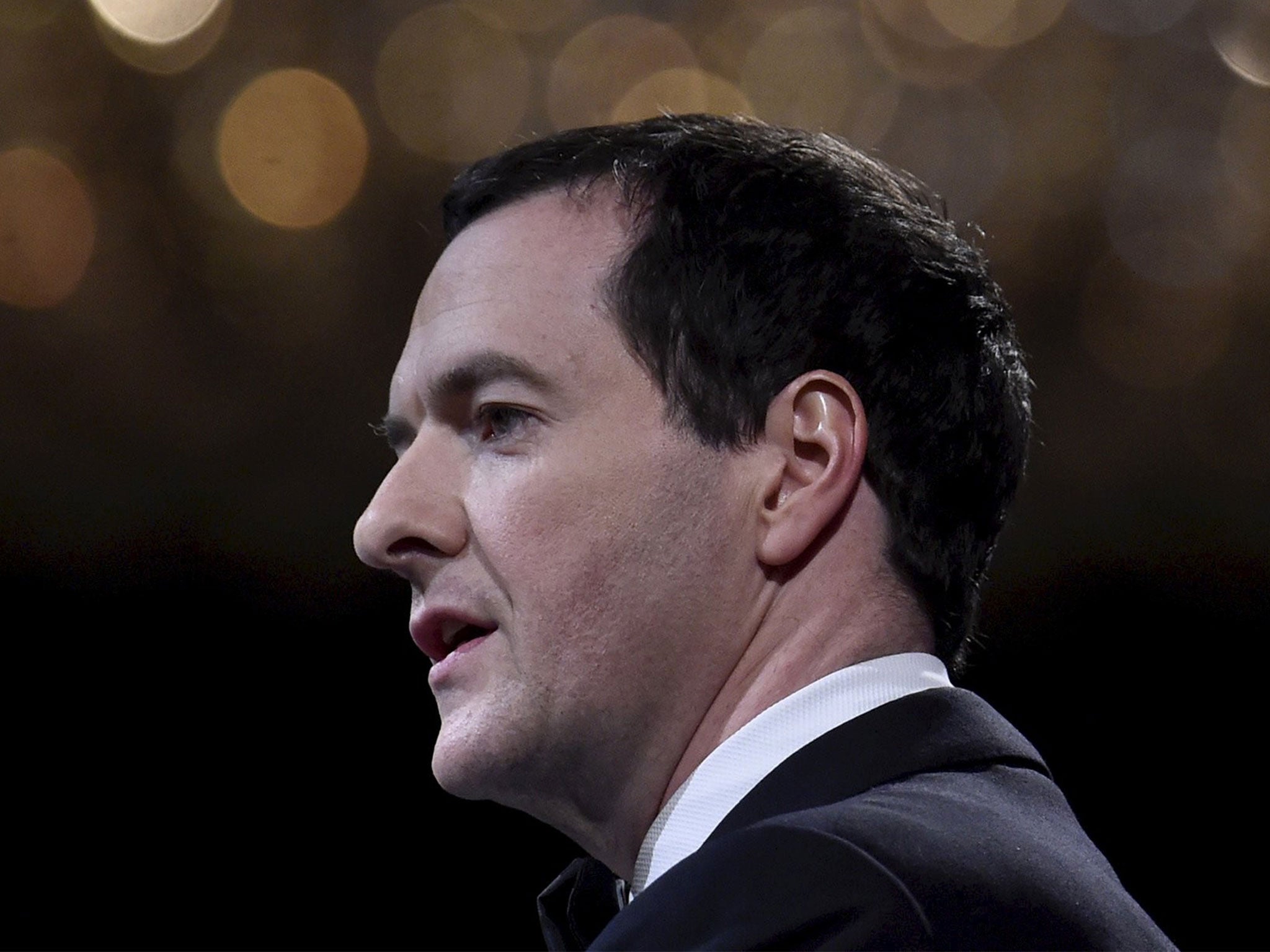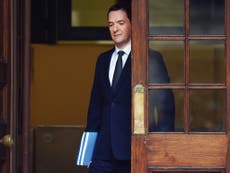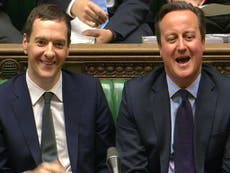If his forecasts come to pass, Osborne will be lucky indeed
Reaching a surplus depends on taxes being the highest, as a proportion of GDP, they have been for 30 years


Is he a lucky chancellor? It is not clear whether Napoleon actually said, “I have plenty of clever generals but just give me a lucky one”, but he did talk of the importance of luck in warfare. And so it is in politics. George Osborne’s cleverness was on display yesterday, but he will also need luck if the tax and spending projections he outlined are indeed to deliver acceptable public services and a budget surplus in five years’ time.
Embedded in the great wodge of information we received are three stories. The first is the Office for Budget Responsibility’s assessment of the country’s economic outlook in the coming years. The second concerns the feasibility of the fiscal plans: is it a reasonable assumption that the deficit will indeed be reversed in the final years of this parliament? And the third is whether these spending plans, given the sleight of hand with which they were revealed, will deliver a level of public service the electorate finds acceptable.
The OBR’s economic forecasts are a thoroughly competent job, and their underlying assumption that the UK will perform relatively well over the next five years is a rational place to start. The economy has done relatively well over the past five years, as successive upward revisions to the growth numbers show, and there is no reason why it should not go on doing so. (We now know that all that stuff about a double dip and even a triple dip was absolute rubbish; the people who peddled it should hang their heads in shame.)
But we are prisoners of the global economic cycle. It is no criticism of Robert Chote, the chairman of the OBR, and his colleagues – top of the range in their honour and competence – to suggest that their predicted steady canter of growth between 2.3 and 2.5 per cent through to 2020 will turn out to be wrong. All past experience suggests that there will be some years when growth is faster, as it was last year, and some when it will be slower, maybe negative. No official forecaster can predict recession, even though we know they inevitably happen. On past experience there will at best be a sharp slowdown sometime between now and 2020, and at worst a standard cyclical recession. Indeed the Chancellor implicitly expects that to happen: that is why, as he puts it, he has to fix the roof while the sun is still shining.
So story one is that the economic forecasts are implausibly optimistic. Somewhere out there in the back end of this decade there will in all probability be another downturn. What does this imply for story two, the fiscal plans? The OBR builds in more pessimistic as well as more optimistic outturns, and it calculates that there is a 55 per cent chance of the Government meeting its fiscal targets. So there is a 45 per cent chance that it won’t. I don’t think people will be too troubled by that, because we all know that in the real world things do come along which blow governments off course. The problem is more that both the revenue projections and the spending ones are towards the favourable end of the historical scale.
Last financial year the Government’s total receipts were 35.8 per cent of GDP and they are expected to be the same this year. That is pretty much the average for the past 30 years – in fact a bit above it if you exclude the bonus from oil revenues. But by 2020-21 this is expected to climb to 37.1 per cent of GDP, the top end of the 30-year range, and a level that has never been sustained for very long. George Osborne did not say so, for obvious reasons, but his plans imply a big increase in taxation.
Now look at spending. What is called total managed expenditure this year will be just under 40 per cent of GDP. By 2020-21 this is expected to fall to 36.4 per cent of GDP. That would be about the same level as under Gordon Brown in 1999, but it could not be sustained for long and proved to be the very bottom of the range since the 1930s. (The chart on page 163 of the OBR report gives a good feeling for these trends in taxation and spending since 1920.) So the second story is that reaching a surplus depends on taxes being the highest, as a proportion of GDP, they have been for 30 years, and spending being the lowest it has been for 80 years. That too seems implausible optimistic.
The third story is more complicated. It always takes a while to digest the huge amount of information in these long-term spending reviews; to de-spin it, so to speak. But already it is easy to spot some of the more slippery elements.
One was the expression “efficiency savings”. That cropped up with reference to the NHS, local authorities, and elsewhere. There is nothing wrong with this in principle, for we all seek efficiency savings in our day-to-day lives, from fitting low-wattage light bulbs to making sure the next car has better fuel consumption than the old one. But if you are running what is inevitably a labour-intensive enterprise – a hospital or a school, for example – it is tough to keep finding savings, year after year.
Another was the shift of the burden to local authorities, presented as giving them more freedom as well as more responsibility. The overall performance of local authorities was one of the positive surprises under the Coalition, for they much increased their productivity. We will see now how well they withstand the even greater pressure they will face. Still another was the use of “protecting in cash terms” – which means cutting by some 10 per cent in real terms.
Ultimately it will be the maths, not the words, that matter. George Osborne has made the judgement that the British people will not pay much more tax than they do at present. So the question is whether the pot of money is enough for a government in a modern advanced democracy to provide a level of service that satisfies the majority of its electorate. It is a huge pot, but there are huge demands on it. If everything turns out towards the favourable end of the scale, Osborne will indeed have been a lucky chancellor.



Join our commenting forum
Join thought-provoking conversations, follow other Independent readers and see their replies